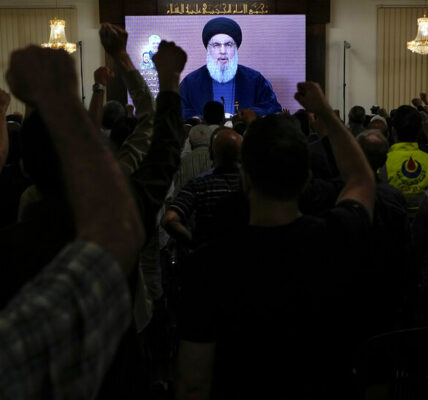Hundreds of students gathered on Wednesday in Harvard Yard in Cambridge, Mass., to protest Israel’s war in Gaza and the Ivy League university’s suspension of a student group, the Harvard Undergraduate Palestine Solidarity Committee.
In addition to the suspension, the university restricted access over the weekend to Harvard Yard, the oldest part of the university’s campus, to only Harvard students and faculty. It was an apparent effort to prevent protests like the ones that have overtaken many other American campuses in the past week, including at Columbia, Yale and the University of Southern California.
But Harvard’s actions appeared to have galvanized students, who flooded the yard’s grassy patches and erected tents as part of an “emergency rally” against the suspension of the student group, also known as Harvard for Palestine.
The group was suspended after it, along with others, organized a protest last week in Harvard Yard. An email from the university that was obtained by the university’s student newspaper, The Harvard Crimson, demanded that the group “cease all organizational activities” through the spring term.
A spokesman for Harvard did not immediately respond to requests for comment.
Pro-Palestinian groups at Harvard have faced a backlash over how they described the Hamas-led attack on Oct. 7. The group leading Wednesday’s protest issued a letter at the time — initially signed by many other campus groups — saying that the Hamas-led attack “did not occur in a vacuum” and that, given the history of the region, the group held “the Israeli regime entirely responsible for all unfolding violence.”
The university has been at the center of a series of controversies since the war. Its former president, Claudine Gay, resigned after being accused of plagiarism and while trying to fend off allegations that she had not done enough to protect Jewish students on campus.




